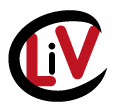Op vrijdag 16 februari 2018 organiseert de vakgroep VTC van de UGent een masterclass “Humor in vertaling: theorie en praktijk”.
Wat:
Humor is vaak onvertaalbaar, zo horen we. Maar humor wordt wel voortdurend vertaald. Hierover houden vier sprekers elk een uiteenzetting met een interactieve component. Engels is de voertaal maar de masterclass is zo opgevat dat studenten ook oplossingen kunnen aanreiken vanuit hun eigen moedertaal.
De masterclass is een project in het kader van Internationalisation@home, een UGent-initiatief dat studenten laat kennismaken met de internationale academische wereld in hun vakgebied.
(https://www.ugent.be/lw/nl/student/internationalisering/internationalistionathome.htm)
Voor wie:
Iedereen is van harte welkom, in het bijzonder Master- en Bachelor3-studenten met een interesse voor vertaling en/of onderzoek naar humor.
Inschrijven is gratis maar wel verplicht. Dat kan heel snel via volgende link:
https://goo.gl/forms/JuCkh2cqcFv6VQBh1
Waar:
Room A108, UGent, Campus Mercator, Building A (Abdisstraat 1, 9000, Gent)
Programma :
09:45-10:00
Welcome and introduction (Jeroen Vandaele)
10:00-10:45
Carol O’Sullivan (University of Bristol)
“The Pragmatics of Literary Humour in Translation: Rhymes and Misunderstandings”
This session will deal with popular fiction and drama.
Languages: French, Italian, English, German.
11:00-11:45
Javier Muñoz-Basols (University of Oxford)
“Wordplay and Linguistic Creativity: Multimodality and Translation in Musical Comedy”
This session will analyse the dubbing and subtitling of My Fair Lady (1964). It will focus on the challenges of translating a multimodal work like a musical, along with its humorous elements.
Languages: English, Spanish. We will also draw on examples of dubbing and subtitling in many other languages.
12:00-13:00 Lunch break
13:00-13:45
Patrick Zabalbeascoa (Universitat Pompeu Fabra, Barcelona)
“The Complexities of Translating Irony in TV and Film Comedy”
This session will deal with ironic humour and the difficulties of its audiovisual translation.
Languages: English.
14:00-14:45
Jeroen Vandaele (UGent)
“Truly Untranslatable? Facing Comedic Complexity”
This session will deal with a film scene taken from The Naked Gun and an excerpt from Felipe Benítez Reyes’s half-comic novel Lo que viene después de lo peor (‘What comes after the worst’, ‘Wat na het ergste komt’). Knowledge of Spanish is not required.
Languages: Dutch, English, French, Spanish.
Gratis
Inschrijving :
Attendants are kindly asked to register via the following link on February 14 at the latest:
https://goo.gl/forms/JuCkh2cqcFv6VQBh1
Contact: Jeroen Vandaele jkm.vandaele@ugent.be
